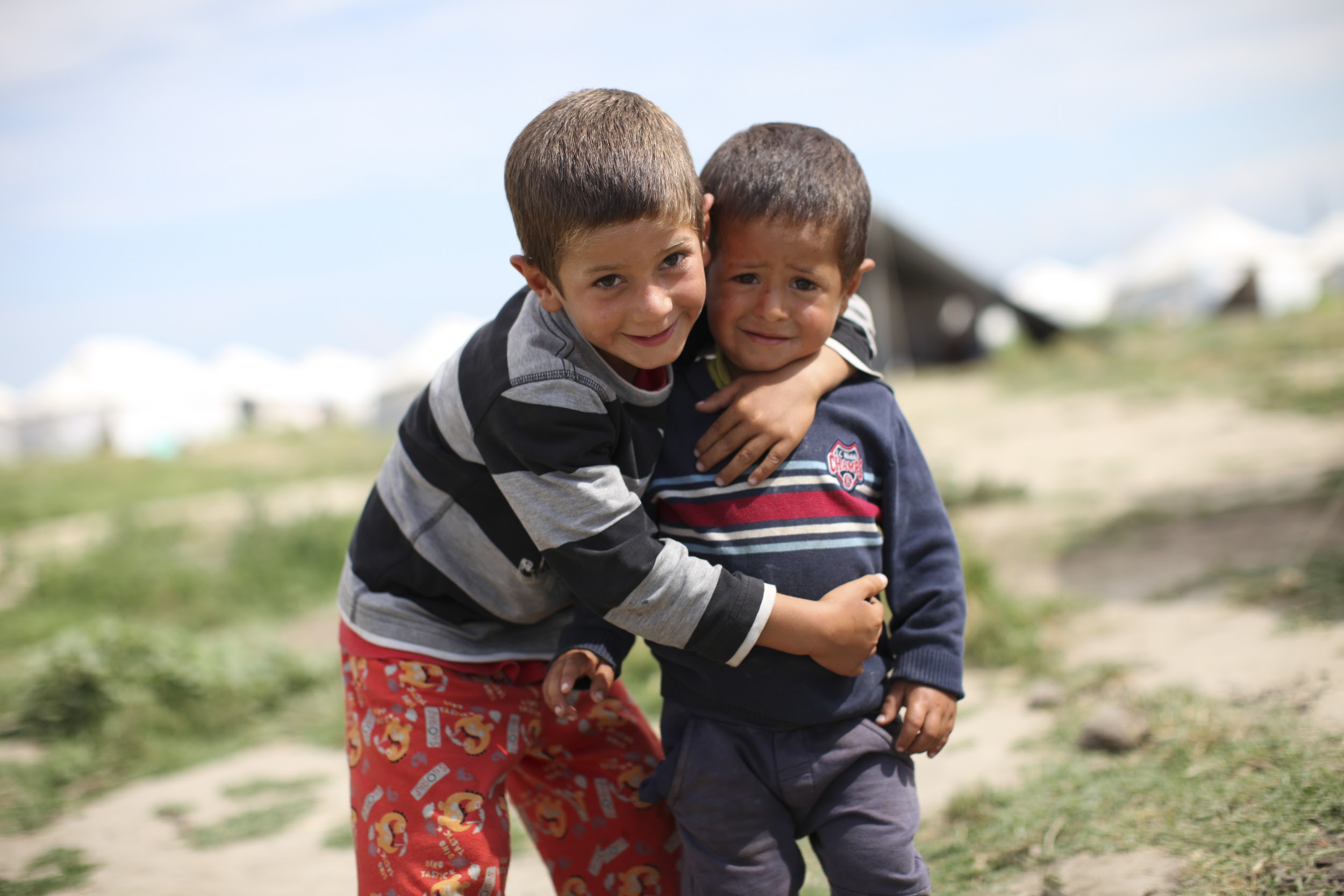Investing in migrant children and their futures
Brussels, 18 December 2018 – On International Migrants Day, the Red Cross EU Office urges the EU and its Member States to ensure that migrant children are effectively protected and are provided with tools to build a positive future.
Globally, the number of children migrating, both with and without their families, has grown substantially in the past decade. In Europe alone, approximately 200,000 asylum claims were submitted by children in 2017, amounting to 30% of all applications. Not to mention the many migrant children who go missing throughout their dangerous and violent journeys, as well as once they reach the continent.

The European Commission Communication on the protection of children in migration provided much welcome policy guidelines and concrete actions. However, over a year and a half later we remain deeply concerned by persistent shortcomings in child protection in many EU Member States. “The best interest of the child is a principle that should be at the core of all decisions and measures with regards to asylum and migration across the EU”, recalls Denis Haveaux, Director of the Red Cross EU Office.
The protection and care that migrant children receive upon their arrival is decisive for their general wellbeing and personal growth. The continued inadequacy of accommodation facilities for migrant children across the Union is extremely troubling. They are often left with no other option but to stay in reception centres without child-friendly procedures, services and spaces. Member States should do more to ensure that their child protection systems are inclusive and address the needs of all migrant children, irrespective of their legal status. Undocumented migrant children are especially vulnerable, as they are regularly prevented from accessing basic services like education or health. Such disregard for their fundamental rights cannot be tolerated. Migrant children must first and foremost be treated as children.
Regrettably, EU immigration detention is on the rise, and migrant children are not exempt. Despite it never being in the child’s best interest, some European countries continue to detain migrant children, whether alone or with their families. Detention entails physical, emotional and intellectual deprivation, which even the most resilient of adults find hard to cope with. The consequences for children are likely to be much worse. “Even after short periods of detention, studies show that children’s cognitive development, as well as their physical and psychological well-being, can be severely compromised in the long run”, warns Mr. Haveaux. “It is critical that EU leaders develop and use alternatives to detention, such as family-and community-based solutions”, he adds.
Family life is often crucial for children, as it brings stability and a feeling of safety. Family separation can have severe impacts on children and their families, as uncertainty over the fate of their loved ones and prolonged separation can lead to acute stress, sleeping disorders, and depression.
Nevertheless, in recent years, Member States have implemented measures that restrict the rights of separated family members to be reunited. For example, national legislation that creates new barriers by introducing waiting periods, or the total suspension of the right to family unity for certain groups. Worryingly, in some countries, unaccompanied minors who have been granted subsidiary protection now have to wait months, if not years, before being eligible to apply for family reunification. Depriving children of their right to family life only contributes to creating more suffering and hinders their integration prospects.
Children’s experiences are formative in developing the tools that they will later rely on in adult life. Having a solid emotional support network is essential to building vital social skills and moving towards independence – something which is rendered even more difficult in the current context of growing animosity towards migrants. “For the sake of these children and their futures, more needs to be invested politically, socially, and economically in creating an environment where all children, including migrant children, can thrive”, concludes Mr. Haveaux.
For further information, please contact:
Eva Oyon, Head of Communications Unit, Red Cross EU Office
+32(0)2 235 09 22
For media inquiries, please contact Eva Oyón on: eva.oyon@redcross.eu or +32 2 235 09 22

